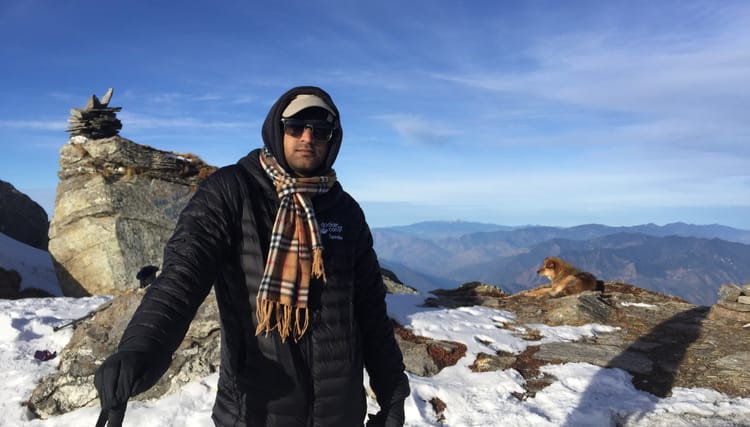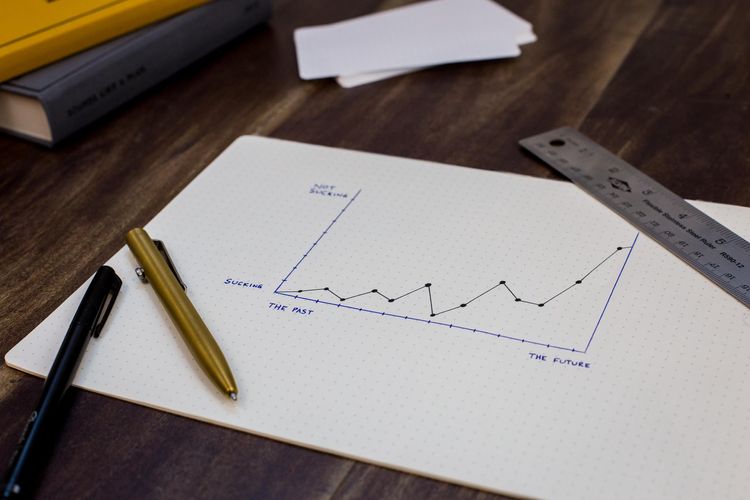7 years: engineering to PM and back

A few months back, I wrote a blog post on the role of PMs in developer tooling. That was me thinking through what my role is and what it should be. Some more introspection later, I decided to move back to engineering and will be doing that in Q3 2025 after a short sabbatical.
Why PM in the first place
I joined Grafana Labs to learn as much as possible about building companies. My initial plan was to leave in 2 years and start my own (7 years later, I'm still here, lolz). I've been very transparent about that, and the leadership at Grafana encouraged and helped me with it. For example, Raj, our CEO, let me be a fly on the wall for a couple of VC pitches with top VCs in the initial rounds of funding.
I wanted to optimize for maximum breadth and learning, and as I've written in 5 year reflection, PM seemed like a good choice.
Two, very different years
2023
Early Grafana times, I was used to having little to no PM help. Engineers spoke to customers and had a good grasp of where the product should head. Engineers owned the product KPIs and understood how well we were performing on adoption and revenue.
Later, when we introduced PMs into the mix, there was a healthy tension between PMs and Engineering on the direction that the product should take. Occasionally, when PM and Engineering disagreed, Engineering won out.
I officially became a PM in February 2023, in the department that built Frontend Observability and Application Observability. It was a new department, and I was the PM for the instrumentation and ingestion side of things. As a result of me moving from engineering to PM and the department being new, we basically had a disproportionate number of PMs to engineers, which resulted in engineers being a lot less product focused than I'd like. I wrote about here: PMs in developer tooling.
This actually scared me that I spent a lot of time fighting to change the culture. I spoke to, and sometimes disagreed with, the leadership. I wrote docs and organized discussions. I probably offended some people. All of this took a lot of energy and, towards the end of 2023, I was exhausted.
2024
But it worked! In February 2024, we had a reorg, merged two departments, and drastically increased the number of engineers per PM. Cedric, my peer in the previous department, basically ended up taking all of my scope. And I became the PM for Asserts, a company we had recently acquired.
I did not have much to show for the year 2023, which left me feeling dejected. But making me the PM for Asserts was a massive vote of confidence in me from the company. I threw myself into it. And I was pleasantly surprised.
This was a startup just a couple of months before, so every engineer was used to speaking to customers, and everyone was extremely customer and product focused. And we were iterating by working closely with a small group of customers to make them successful with the product. This was familiar territory, it was how we built Mimir and Loki. I did this before and I truly enjoyed it.
I worked hard, had a lot of fun, and demoed the work with a testimonial from BlackRock, one of the customer engagements I led. It ended up being one of the most challenging but rewarding years of my career.
Should you do it?
I don't know about you, but I loved it. It was challenging, and fun. And I believe I became a much rounded and product oriented engineer after. I also learnt a lot about effective teams and building and shipping products from scratch. My goal of learning new skills to help me build my own company is ✅
Observations
I stayed a bit too technical
We build products for engineers. So I naturally assumed that being highly technical, and a recent engineer, would be a strength going into the role. This was indeed true, as I had strong intuition about what was important and what was not, and I could also empathize with our users quickly.
I also understood how things worked, and could influence the direction, and enjoyed geeking out with the engineers. However, this quickly became a pitfall. There were times when I spent a lot more time understanding how the machine moved than with Go-To-Market.
I should have spent way more time with enabling the field and in pricing discussions. I did as little of it as I could possibly get away with and spent a lot more time with engineers and customers. You can guess why I wasn't promoted in the two years ;)
Every engineer is different
Watching engineers operate without being in the weeds was revelatory. I realized that every engineer was different. Different people derive the sense of worth and accomplishment from different activities.
Not every engineer is inclined to be product focused, some people just thrive on building cool features. And that's OK. You can't force them.
And some engineers are naturally product focused. They catch bad UX as bugs and make it their life's mission to make customers successful.
A good team needs a healthy mix of both, but an early startup needs a lot more of the latter. And I now know which traits to look for when building the founding team 😄
Culture
There is no “perfect” culture. I knew that. But I found out which culture I liked. And people choose the culture they like.
For example, there will be AMAZING engineers who want to delegate everything to PMs and just write code. Great engineers who wish to be told what to build next. They might be great people, but I don't think they'd thrive at Grafana Labs.
Culture is also a living, breathing thing. It evolves with time and growth. I still like the culture we have here, and we're constantly striving to preserve the best parts of it as we grow. It's hard work, but I plan on putting my best foot forward and calling out the bits I don't agree with. And make sure people who do the right thing get the recognition for their work.
Because there's a risk that it'll change to a point that I won't like it anymore. And that's when I know it'll be time to leave. And I would rather not leave on those terms.
Back to engineering
When I made the move, I committed to at least two years in Product with the intention to move to something else if I find it's not for me. The two years are up, and I have decided to get back to engineering.
OSS and Community
As I thought about it, this stood out as an overwhelming reason. I built my career on Open Source, and I am extremely passionate about it. We were building a product on top of OpenTelemetry and Prometheus, but Prometheus' support was rudimentary at best. Improving it was critical for our product, but it would take a lot of consensus building work that nobody else was inclined to do.
After complaining enough times, I started working on it. I got leadership buy in for this work, and it was called “important for the company”. In 2023, I spent a lot of time laying out the problems, potential solutions and committed the Prometheus team to launching a Prometheus 3.0 with first-class OpenTelemetry support. The actual work was done by other people, but I laid the groundwork for it. In 2024, I worked on the new Prometheus Governance to ensure the long-term success of Prometheus, which has huge synergies for Grafana.
I was sinking considerable energy into this, but unfortunately, getting little to no recognition for it. My department primarily built cloud products and the PM's KPIs were revenue and cloud adoption, so there wasn't much scope for OSS contributions. I get it, we spread our PMs very thin (as a strategy) and me spending 30% on a side-quest affects my entire group. I was allowed to do it, but it was considered “bonus” work, and not part of my core job.
It's important enough for me personally that I want it to be part of my core job.
Public Speaking
One of the surprising things I missed was public speaking. We were building A LOT of cool shit, and I wanted to talk about it. But it's always better for the engineer who actually built the thing to talk about it. I got other people to share their work while sorely missing doing it 😄
While not a dealbreaker, I wanted to find a role where it was easier for me to submit talks to conferences.
Using my tools
I wasn't on-call anymore. I didn't need to troubleshoot issues. I wasn't using my tools anymore and I sorely miss it. Dogfooding was one of the main reasons I had confidence in my product decisions.
To alleviate it, I started running a homelab and trying out all the tools, filing issues, feature ideas, but it was nothing like being your own customer.
Being the engineer you want to see
I realized that I could move back to engineering and:
- still contribute to product decisions.
- still engage with customers.
- still own the success of the product.
ie., I could still do all the things that I enjoyed about my PM role without the “boring parts”. And it's easy to find a role in engineering that allows me to continue contributions to OSS. Just the prospect of moving back to engineering fills me with excitement and joy.
It's also easy for me to say that “Engineers should be product focused”, but I want to make sure I can still do that. Live the culture that I wish to see.
Finally, the past two years were out of comfort zone and hard. I had fun, but I am a little tired. I am looking forward to getting back to my comfort zone, and just having easier fun for a little.
But first: Customer Success and Sabbatical
I am going to take a 3-month sabbatical before the move, but I also saw the switch as a way to try something new. If I enjoy working with customers, why not see if customer success is for me.
This idea precipitated when the “Project Frontline” program was launched internally that allowed engineers to spend a month with the customer success team helping customers and understanding the challenges they face. This aims to build empathy with customers and helps improve the product focus of our engineers 😄
I asked if I could do it for three months instead of one and, well,… my three months start Feb 1st. And then I am off for 3 months: May, June and July!
And before I close, I want to add that I am EXTREMELY grateful to Grafana Labs for giving me this opportunity. And to my managers, Richard Lam and Cyrille Le Clerc, who tolerated my idiosyncrasies on this journey. And to Manoj Acharya for all the ice-cream, long walks, bike rides and most of all, your faith in me.





Member discussion